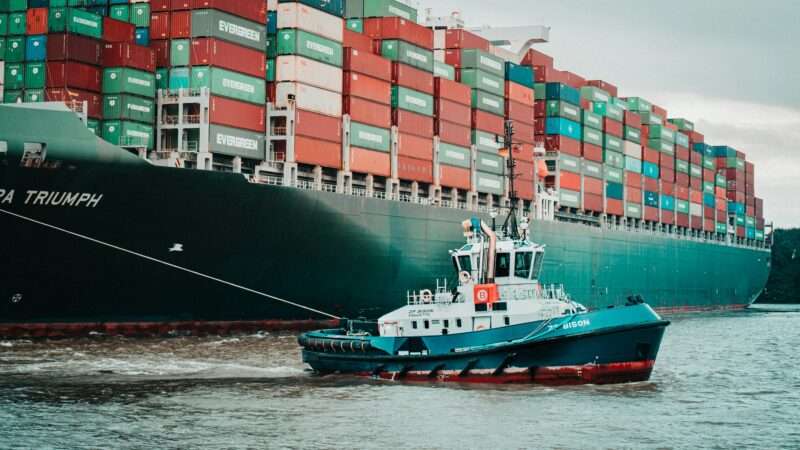
American businesses bore the brunt of the tariffs hiked by former President Donald Trump, but having the right friends allowed some to dodge those higher costs.
Politically connected firms—specifically, those that donated to Republican candidates, including Trump—were more likely to succeed when asking the government for an exemption on imports that would normally be subject to tariffs, a new report concludes. It's a finding that seems particularly relevant at the moment, as Trump is campaigning on a promise to hike more tariffs if he returns to the White House, while some conservatives see a potential second Trump term as a chance to reward friends and punish enemies.
In the study, four researchers reviewed 7,015 applications for exemptions that companies filed with the Office of the U.S. Trade Representative. Of those, only 1,022 were approved—but requests from companies that reported spending more on lobbying were more likely to gain approval. Companies with political action committees that made campaign contributions to Republicans were even more likely to score an exception, while those that donated to Democrats were more likely to have exemptions denied.
"Our findings reveal that politicians not only use exemptions to reward their supporters, but also withhold exemptions to punish supporters of their opponents," Jesus Salas, an associate professor of finance at Lehigh University and one of the authors of the study, said in a statement. "The tariff exemption grant process functioned as a very effective spoils system allowing the administration of the day to reward its political friends and punish its enemies."
As Reason has previously reported, the exemption process created when Trump hiked tariffs on a wide range of imports in 2018 allowed companies to avoid paying tariffs if they could show that a certain imported product could not be obtained from sources outside China or if the tariffs would impose significant harm on the importing business. The system was a black box that gave officials at the USTR wide latitude to make judgments, with no oversight from Congress and no due process for firms that had applications denied.
From the outset, the tariff exemption process seemed ripe for political influence. The new report seems to confirm that is exactly what happened.
Raising barriers to trade, including tariffs, gives bureaucrats in Washington more control over the private business decisions of American companies. Naturally, some companies respond to that arrangement by trying to influence the bureaucrats. Rather than "draining the swamp" or reducing the federal government's regulatory power, Trump's trade policies only add to it—and encourage more lobbying, backroom deals, and influence peddling.
For conservatives who advocate higher tariffs, those outcomes might be seen as features rather than bugs. Indeed, the economic nationalism of the so-called New Right is often linked with the impulse to wield power without regard for fairness. It's a worldview that's antithetical to free markets and limited government.
If Trump wins reelection and succeeds in his plan to impose new tariffs on nearly all imports—he's threatened a 20 percent "universal tariff" and up to 60 percent tariffs on goods from China—the cost will overwhelmingly fall on American consumers and businesses. It's an arrangement that could give Trump's trade officials even more leeway to deliver special favors.
The post How To Avoid Paying Tariffs? Have a Friend in Washington. appeared first on Reason.com.







